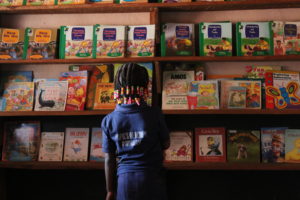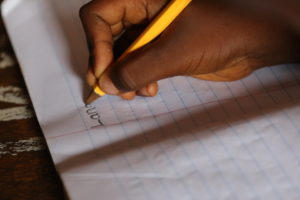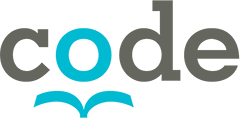With the world a third of the way through to the Sustainable Development Goals’ target date of 2030, stakeholders such as CODE are taking stock and reflecting how Africa, the continent furthest off track on most of the SDGs, is progressing in key sectors including education.
We know that progress during the “Education for All” (EFA) era (2000-2015) was significant, but we also know the continent ultimately fell well short of reaching the EFA targets in part because Africa faces such daunting challenges. At the primary and lower secondary levels, only 64 per cent of teachers are trained, and less than half of schools have access to electricity, the Internet, computers and basic drinking water, exacerbating the disparities between rich and poor, urban and rural. Children from the poorest households, for example, are four times more likely to be out of school than those of the richest households. At the same time, there have been hopeful signs. Today more than half of the countries in Africa have a primary school enrollment rate of over 90 per cent and are likely to meet the target of 100 per cent by 2030, but only if current efforts can be sustained.
 With the COVID-19 pandemic that last line takes on so much greater significance. In the face of the near total shut down of schools, what can African governments, donors and civil society do to sustain efforts and maintain the hard won progress that has been achieved since EFA was first declared? Failure, as they say, is not an option. Quality education and high levels of literacy and numeracy are not only critical to keep people informed, safe and healthy, but Africa desperately needs those skills to achieve a greater level of economic resilience to weather this and future crises. It is in fact strong literacy skills which allow society to help separate fact from fear, to make informed decisions and to enable populations to learn new skills, adapt and move forward with confidence.
With the COVID-19 pandemic that last line takes on so much greater significance. In the face of the near total shut down of schools, what can African governments, donors and civil society do to sustain efforts and maintain the hard won progress that has been achieved since EFA was first declared? Failure, as they say, is not an option. Quality education and high levels of literacy and numeracy are not only critical to keep people informed, safe and healthy, but Africa desperately needs those skills to achieve a greater level of economic resilience to weather this and future crises. It is in fact strong literacy skills which allow society to help separate fact from fear, to make informed decisions and to enable populations to learn new skills, adapt and move forward with confidence.
With tens of millions of African children staying at home right now, options are limited to keep in touch with teachers. While rich countries are scrambling to get schools fully online, much of Africa is hampered by the lack of broadband Internet connections or access to the devices needed for online learning. School closures also mean the absence of a critical safety net beyond education. This includes those who rely on school feeding programs for nutrition or those living in unsafe environments who rely on the classroom for physical and emotional safety. We know for example during the school closures in Sierra Leone during the Ebola crisis that there was a surge in sexual abuse and with it, a huge spike in teenage pregnancies.
So back to the original question of what can we do to make a difference in the immediate term to keep teaching and learning alive and to help ensure schools can reopen responsibly so as not to contribute to a re-emergence of the disease? In this regard CODE and its partners are focused on an approach to support foundational learning skills, understanding that literacy is fundamental to learning, paving the way for education in all other subjects. Our remote programming will prioritize support for children to retain and build these foundational skills.
 We will do this through a combination of physical access to great children’s books and other initiatives. The books are published locally and will be distributed to families as part of home-schooling kits. This will be paired with radio programming, which for Africa is the most cost-effective and inclusive method of providing accessible instruction to students and families. With a “Radio Reading Teacher” coming into the home each day and with engaging relevant learning materials available, the connection between home and school is strengthened as a key to good learning, accelerating literacy outcomes not only for the student but for the entire family.
We will do this through a combination of physical access to great children’s books and other initiatives. The books are published locally and will be distributed to families as part of home-schooling kits. This will be paired with radio programming, which for Africa is the most cost-effective and inclusive method of providing accessible instruction to students and families. With a “Radio Reading Teacher” coming into the home each day and with engaging relevant learning materials available, the connection between home and school is strengthened as a key to good learning, accelerating literacy outcomes not only for the student but for the entire family.
Certainly, we cannot ignore the digital divide, and the uneven access to connectivity and devices that it implies. Addressing this must be part of the solution in the longer term especially as we seek to support professional development for teachers and trainers, working in schools and teacher colleges. In this regard key measures are needed to prepare individuals and institutions for the years ahead with support to provide quality Internet access to all, support for teachers and trainers to operate in the new environment, strengthened systems for the recognition and validation of digital learning, and improved coordination among education and training institutions.


